Vietnam expects $50 billion in agro, forestry, and aquatic exports in 2023
Speaking at the "Bringing Vietnamese agricultural products and processed foods into foreign distribution systems" workshop on August 14 in Ho Chi Minh City, Nguyen Thao Hien, deputy director of the European-American Market Department at the Ministry of Industry and Trade said, "Vietnam is among the world's top 3 suppliers of coffee, the largest supplier of cashew nuts and pepper, and the third-largest supplier of rice."
Over the first eight months, China, the United States, and Japan remained the three largest export markets for Vietnam. The export value to China accounted for 21.9 per cent, the US made up 20.6 per cent, and Japan stood at 7.6 per cent.
In 2022, many of Vietnam’s agricultural products, such as banana, sweet potato, bird's nest, grapefruit, longan, passion fruit, and durian were licensed for export to developed markets including the US, Japan, China, and New Zealand.
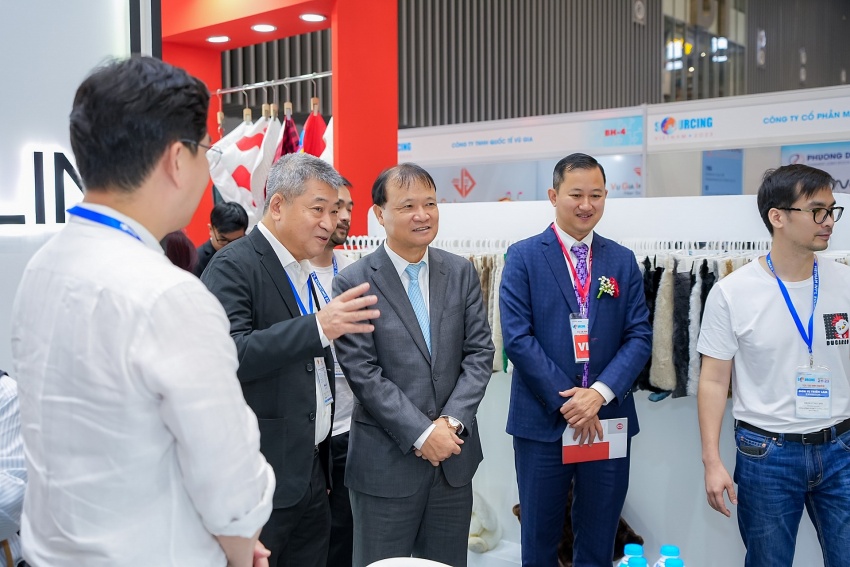 |
| Deputy Minister of Industry and Trade Do Thang Hai (centre) and leaders of businesses at the workshop |
| "China remains an attractive market for Vietnamese agricultural products in 2023 thanks to the booming demand and the close geographical location, which reduces logistics costs and time compared to other markets," Hien said. |
Although Vietnam's agricultural product industry has achieved many positive results, sustainable development and environmental protection are still key requirements in most of its key export markets.
Countries are adjusting their legal frameworks with a series of new laws and regulations to meet specific goals, and these are spreading to other nations thanks to the strong political commitments that were made at COP26 and COP27.
In fact, the EU is a pioneer market on this issue with the promulgation of a series of laws under the European Green Deal, aimed at addressing the challenges related to climate and the environment.
In mid-May, the EU issued the Carbon Border Adjustment Mechanism (CBAM) regulations, which force importers into the EU to report their total carbon emissions for goods.
| “Vietnam produces over 29 million tons of rice straw, and more than 80 per cent of this is burned in the fields after harvest. The habit of drying rice in traditional ways, such as by placing it on roads and fields in rural areas, and low rice milling efficiency in many countries are increasing the waste of this precious food,” Thuan said. |
At the end of June, the EU also issued the EU Regulation on Deforestation-free Products (EUDR). Accordingly, companies trading in wood, coffee, cocoa, rubber, soybeans, cattle, palm oil, and derivative products in the EU must prove that their goods are not related to illegal deforestation activities.
Currently, the regulations on environmental protection in Vietnam's main export markets such as the EU, North America, and Northeast Asian markets are becoming increasingly stricter.
The US and Canadian governments are also considering mechanisms similar to the EU's CBAM and EUDR.
According to Nguyen Duy Thuan, CEO of Loctroi Group, rice is essential, and is an important aspect of food security. Its production is also an important source of income for over 150 million farming households worldwide. However, it is both a victim and a culprit of climate change.
Rice growing and processing generates significant greenhouse gas emissions, including methane, nitrous oxide, and CO2, equating to 10 per cent of global methane emissions and from 25 to 33 per cent of those in Southeast Asia.
“All of this data gives us a clear message that rice production is currently unsustainable, so we need a strategic change,” emphasised Thuan.
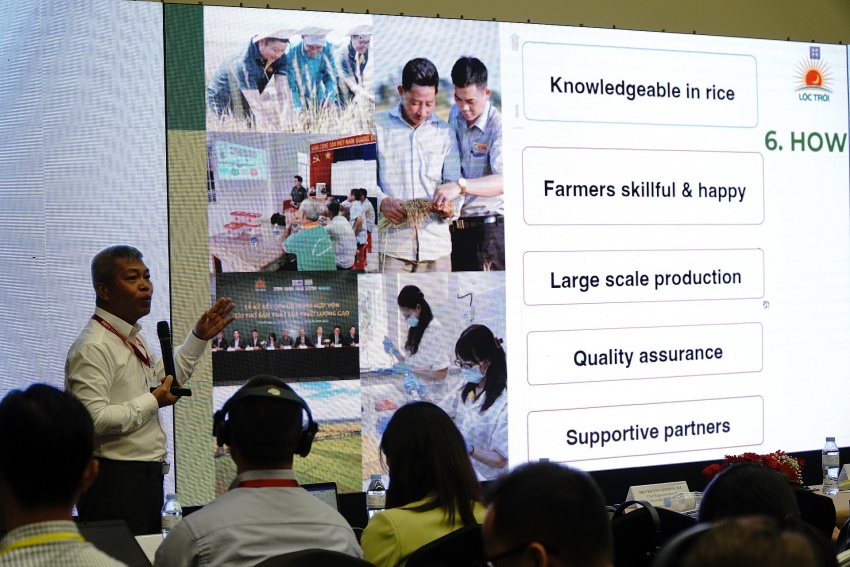 |
| Nguyen Duy Thuan, CEO of Loctroi Group, displayed advanced technological solutions to maximise sub-products post rice harvest |
Being one of the leading rice processors in Vietnam, Loc Troi has built a strategy for rice production that aims to change production habits by applying sustainable rice-growing standards (SRP), training farmers to practice SRP criteria with bonuses to encourage positive habits, and inviting international agencies to verify and certify the results.
In its factories, Loc Troi has researched and improved advanced technological solutions to maximise the sub-products post rice harvest and reduce post-harvest waste. It has also applied kaizen (meaning continuous improvement) in 10 factories with the aim of increasing efficiency to 90 per cent from the current 70 per cent, and installed solar energy in all its factories to reduce fossil fuel use.
"Currently, Loc Troi is the only company in the world to achieve an SRP100 score, certified by the World Rice Research Institute and independent international inspection agencies. It has achieved this maximum score for four consecutive years. This SRP100 certification also provides an opportunity to have confirmed carbon credits that can be traded on the international carbon credit market," Thuan emphasised.
Tran Minh Thang, head of the Vietnam Trade Office Branch in San Francisco, said that to improve the efficiency of exporting fresh lychees to this market, compliance with food safety regulations is a prerequisite. This requires the farming and growing process to strictly comply with the regulations and requirements of the import markets.
“Cooperating with large-scale retailers such as AEON, Safeway, Albertsons, and WinCo Foods is an important strategy. Store chains and supermarkets in the US, Japan, EU are increasingly focusing on providing fresh and natural fruits. Therefore, establishing partnerships with these retailers can bring great benefits to businesses,” Thang emphasised.
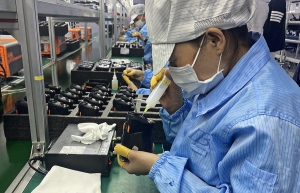 | Import-export turnover of FIEs drops by $9 billion The import-export turnover of foreign-invested enterprises (FIEs) dropped by $9 billion in the first two months. |
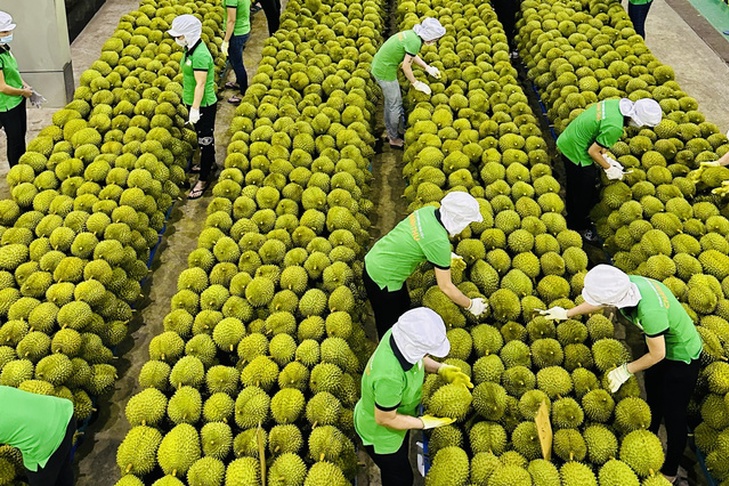 | MARD targets $14 billion in agro-forestry-aquatic exports in Q2 The Ministry of Agriculture and Rural Development targets $14 billion in export turnover of the agro-forestry-acquatic sector in the second quarter of this year, an increase of 3 per cent on-year. |
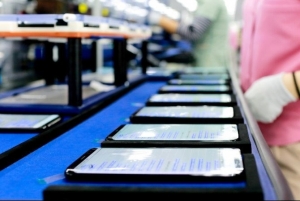 | Vietnam's exports plunge in first quarter Vietnam's exports are down almost 12 per cent in the first four months of the year, with some sectors reporting declines of between 6 and 19 per cent. |
What the stars mean:
★ Poor ★ ★ Promising ★★★ Good ★★★★ Very good ★★★★★ Exceptional
Related Contents
Latest News
More News
- GE HealthCare showcases latest imaging innovations in Vietnam (January 19, 2026 | 11:56)
- BIM and ISO 19650 seen as key to improving project efficiency (January 17, 2026 | 10:45)
- US-Vietnam partnership targets tilapia development and soy-based aquafeed trade (January 16, 2026 | 16:50)
- Vietnam, UN strengthen cooperation in digital technology, AI (January 16, 2026 | 16:48)
- Shopee and TikTok Shop account for 8 per cent of Vietnam’s retail market (January 16, 2026 | 00:00)
- Sanofi, Long Chau Pharmacy relaunch medicine blister pack collection initiative (January 15, 2026 | 15:35)
- Viet Industry 2026 exhibition scheduled for September (January 09, 2026 | 09:51)
- Cathay kicks off ‘80 Years Together’ anniversary celebrations (January 08, 2026 | 11:05)
- Electronics drive Vietnam’s trade growth as exports hit record in 2025 (January 07, 2026 | 10:23)
- Vietnam’s domestic market to grow 10-12 per cent from 2026-2030 (January 06, 2026 | 17:58)

 Tag:
Tag:





















 Mobile Version
Mobile Version